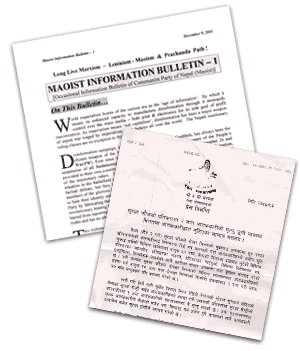 We're not sure if anyone reads editorials anymore. There is a creeping sense of frustrating futility about pontificating from this pulpit. This is the moment of truth that all arm-chair analysts face: it is easy to be a critic, aloof and removed from responsibility, and raise a finger once a week to say: "I say, lads, aren't you all making a bit of a mess of things?" It is much harder to be accountable than to call others to account. It is easier to give unsolicited advice than to make things work.
We're not sure if anyone reads editorials anymore. There is a creeping sense of frustrating futility about pontificating from this pulpit. This is the moment of truth that all arm-chair analysts face: it is easy to be a critic, aloof and removed from responsibility, and raise a finger once a week to say: "I say, lads, aren't you all making a bit of a mess of things?" It is much harder to be accountable than to call others to account. It is easier to give unsolicited advice than to make things work.
At this time in our nation's history, many of us self-appointed guardians of public opinion have rather unquestioningly given up some of our liberties so that our future freedom will be guaranteed. This is so that the Royal Nepal Army can wage a war that will win a peace. You have to live through the night for the dawn. As the commander-in-chief argues in the interview with Vijay Kumar no military likes a civil war, the army does not get satisfaction killing fellow-Nepalis, but it has been given a job to do. And Gen Prajwol Rana says he is going to do it quickly, and with as few casualties as possible. But he knows as well as anyone else that a war alone will not bring peace.
We have been asked not to ask how well or how badly the army is doing its job. Fair enough. But this is the Age of Infowar. In essence, the army and the Maoists are both engaged in a war to win the hearts and minds of the people. In this struggle, news and information are as important as mortars and land mines. And the potency of information as a weapon depends on the credibility of the source. The army brass seems to understand that, but it must also realise that in this day and age you don't win hearts and minds with an information clampdown.
The Americans learnt a lesson or two in Vietnam about information warfare, and during the Gulf War tried to manage information with heavy-handed restrictions and one-sided access to the front. Only grainy television footage showing smart bombs hitting crosshairs were seen by the world. But this selective coverage ultimately backfired because of a credibility gap. During the current Afghan campaign, the US military's information managers have been much more sophisticated about it.
Our own Maoists have launched their email war bulletins to counter the government's official version of events. This is going to turn out to be a war of press communiques in cyberspace if we are not careful. Both sides are going to exaggerate their accomplishments and downplay defeats. A half-truth is as bad as a half-lie. The side that has kept its credibility intact is the one that is going to come out victorious in this battle. And those on the side of freedom must always have more credibility. They must allow media outlets the space to exercise their freedoms so that when the time comes, if nothing else, it can use their public trustworthiness.
It is better to give it straight, only keeping back the operational details that would jeopardise troops. The Nepali media has in general been sympathetic to the security forces even before the emergency went into force, and the army should not squander this support. Governments can antagonise media and the public by deliberately misleading, or by misusing the provisions of the emergency to gag journalists they don't like. Both are counterproductive and, needless to say, would harm the cause of freedom.


